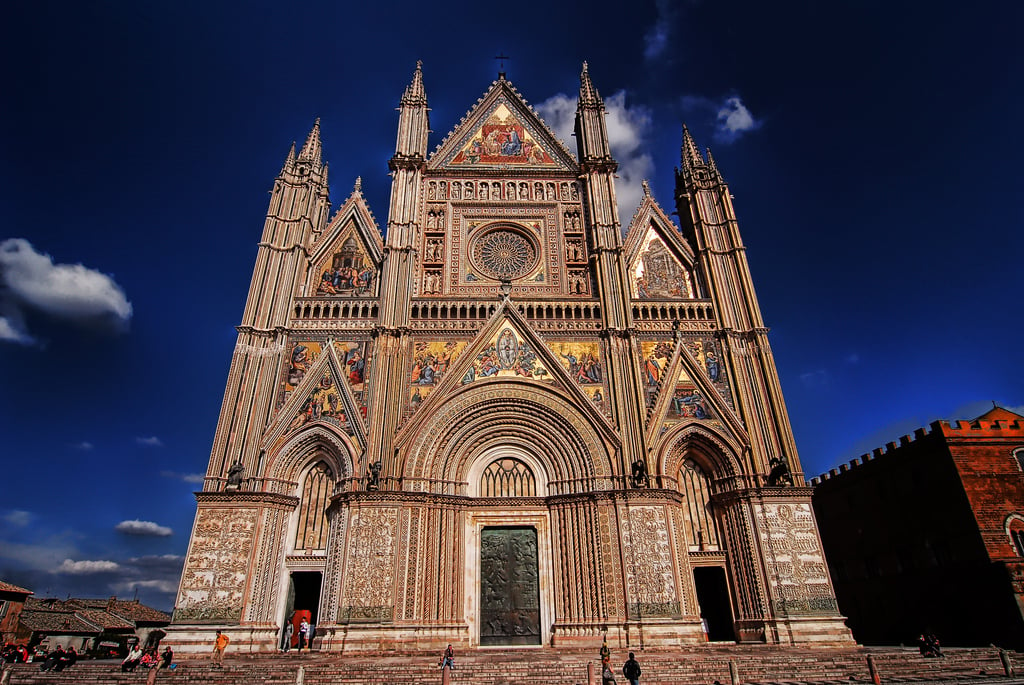In running the Christian race, have you ever felt like quitting? Do you wonder if you’ll make it to the finish line at all? The fact is, many things stand in the way of our Christian progress. It’s “through many dangers, toils, and snares,” John Newton famously wrote, that we enter the kingdom. Writing to a group of first-century Christians, Jude encouraged them to keep on amid the threats to their perseverance. He urged the church “to contend for the faith” even when false teachers were teaching a contrary Gospel (Jude 3–4). Having informed them of the dangers these teachers posed in verses 5–19, Jude then reminded the believers of what they were to do (vv. 20–23) and of what God is able to do (vv. 24–25). The book’s concluding verses are a doxology, an expression of praise: Now to him who is able to keep you from stumbling and to present you blameless before the presence of his glory with great joy, to the only God, our Savior, through Jesus Christ our Lord, be glory, majesty, dominion, and authority before all time and now and forever. Amen. (Jude 24–25) These verses remind us of what is at the center of the Christian life. To the believer who asks, “Will I make it to the finish line and into eternity?” Jude essentially answers, “Yes, because God is at work in us to bring us safely through!” Our tendency is to have big thoughts of ourselves and small thoughts of God. But Jude encourages the opposite, directing his readers’ attention to God at the outset: “Now to him…” he writes (v. 24). Jude knew his Bible and was no doubt familiar with the psalmist’s declaration: I bow down toward your holy temple In short, we must remember that our existence is from and directed ultimately to God—that “the chief end of man” is “to glorify God, and to enjoy Him forever.” We live not for ourselves but for God and His glory. When God takes first place in our lives, He is pleased to accomplish a number of things in us. The rest of verse 24 identifies three of God’s activities in the believer’s life: preservation, presentation, and jubilation. First is the promise of our preservation: God, we read, keeps us from “stumbling” (v. 24). In another New Testament letter, Jude’s brother James seems to say the opposite: “We all stumble in many ways” (James 3:2). Indeed, Christians know just how easy it is to be tripped up. There is the problem of our hearts, which want those things that God does not want for us. There’s also the threat of our enemy, the Evil One, who is always on the prowl, looking to devour the godly (1 Peter 5:8). Where James is talking about the ease with which Christians get tripped up day by day, Jude is looking beyond the horizon and to our final salvation. He says God will not ultimately let His children fall from His family. Though we stumble in many ways, God keeps us from stumbling in such a way that we forfeit the promises of God in Christ. The Westminster Confession helps us make sense of the Christian struggle this side of eternity: When God converts a sinner and brings him into a state of grace, he frees him from his natural bondage to sin, and by his grace alone he enables him freely to will and to do what is spiritually good. Yet, because of his remaining corruption, he does not perfectly or only will what is good, but also wills what is evil. For Christians, although sin no longer reigns, it remains. We stumble, no doubt, but we won’t finally fall from a state of grace. It is God’s strength, not ours, that gets us back on our feet and preserves us. Practically, God’s preserving work unfolds as we walk in obedience. We must keep ourselves in God’s love (v. 21). But the only way we keep ourselves is because God is keeping us. God provides the means; we use the means He provides. God is able not only to keep us from stumbling but also to present us before Him on the last day. We won’t stand in front of God boasting in our accomplishments and efforts. We will be indebted to grace, saying, “Unto Him belongs praise.” The one who keeps us will present us. Not only this, but Jude also reminds us that we will be “blameless” before God on that day. The word has to do with the purity required of sacrifices under the old covenant. Anything offered to God, from food offerings to burnt offerings and even extending to the lives of the worshippers, was to be without blemish. God required blamelessness on the part of His people (Ps. 15:1–2). Jude, drawing from all that Old Testament imagery, now reminds the believers to whom he writes that only God is able to keep them and present them without blemish. And we know that God has made us blameless by sending His sinless Son to bear our punishment. Indeed, the only way we will be presented blameless before God is by trusting in the Lord Jesus. God receives the sinner only on the grounds of Christ’s perfect righteousness, which is credited to us by faith in Him. Those whom God preserves will be presented finally “with great joy” (Jude 24)—a joy unlike anything we’ve experienced on this side of eternity. This joy is a solid joy: sin being gone, Satan being shut out, temptation being eradicated forever. On that day, believers will share in the joy of the Lord Jesus Himself as He receives into eternity the unblemished bride for whom He died. Spurgeon, commenting on Jude 24, says, “God himself will have joy. It is no blasphemy to say that the joy of God on that occasion will be infinite. It is always infinite; but it will be then infinitely displayed before his creatures’ gaze.” It’s the picture of the father in the parable of the prodigal son, running to meet his once-lost child (Luke 15:20–24). The father is filled with joy; the son shares in it. The event Jude describes will be one of jubilation for those in Christ. What is God able to do? God is able first to keep us from stumbling. He catches us as we stumble, prevents us sometimes, and always picks us up. Further, the one who keeps us is able to present us blameless on the last day. Believers stand clothed in Christ’s righteousness. His sinless life and death in our place makes us pure. And finally, Jude reminds us that God will one day welcome us into His presence with joy. Because God is able to do these things, we can have confidence in His saving purposes. And in the meantime, until Christ calls us home, we are able to make these lyrics our prayer and praise: No condemnation now I dread; This article was adapted from the sermon “Amazing Grace” by Alistair Begg.
“Now to Him…”
and give thanks to your name for your steadfast love and your faithfulness,
for you have exalted above all things
your name and your word. (Ps. 138:2)Our tendency is to have big thoughts of ourselves and small thoughts of God.
Preservation
Presentation
For Christians, although sin no longer reigns, it remains.
Jubilation
The only way we will be presented blameless before God is by trusting in the Lord Jesus.
God Is Able
Jesus and all in Him is mine!
Alive in Him, my living Head,
And clothed in righteousness divine,
Bold I approach the eternal throne
And claim the crown through Christ my own.

Copyright © 2025 , Truth For Life. All rights reserved.
Unless otherwise indicated, all Scripture quotations are taken from The ESV® Bible (The Holy Bible, English Standard Version®), copyright © 2001 by Crossway, a publishing ministry of Good News Publishers. Used by permission. All rights reserved.











 English (US) ·
English (US) ·